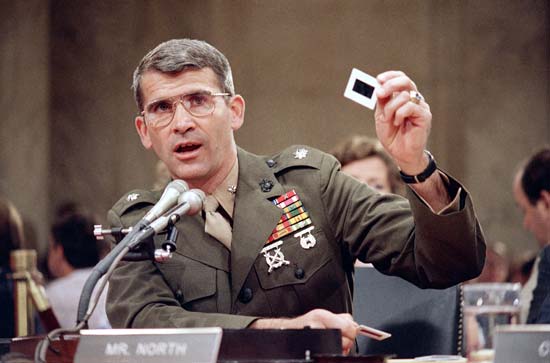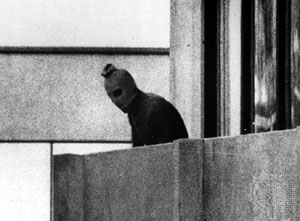Hezbollah, Arabic Ḥizb Allāh (“Party of God”), also spelled Hezbullah or Hizbullah, militia group and political party that first emerged as a faction in Lebanon following the Israeli invasion of that country in 1982.
- Hassan Nasrallah, 2006.Mohamed Azakir—Reuters /Landov
Shīʿite Muslims, traditionally the weakest religious group in Lebanon, first found their voice in the moderate and largely secular Amal movement. Following the Islamic revolution in Shīʿite Iran in 1979 and the Israeli invasion of Lebanon in 1982, a group of Lebanese Shīʿite clerics formed Hezbollah with the goal of driving Israel from Lebanon and establishing an Islamic state there. Hezbollah was based in the predominately Shīʿite areas of the Biqāʿ Valley, southern Lebanon, and southern Beirut. It coordinated its efforts closely with Iran, from which it acquired substantial logistical support, and drew its manpower largely from disaffected younger, more radical members of Amal. Throughout the 1980s Hezbollah engaged in increasingly sophisticated attacks against Israel and fought in Lebanon’s civil war (1975–90), repeatedly coming to blows with Amal. During that time, Hezbollah allegedly engaged in terrorist attacks including kidnappings and car bombings, directed predominantly against Westerners, but also established a comprehensive social services network for its supporters.
Hezbollah was one of the few militia groups not disarmed by the Syrians at the end of the civil war, and they continued to fight a sustained guerrilla campaign against Israel in southern Lebanon until Israel’s withdrawal in 2000. Hezbollah emerged as a leading political party in post-civil war Lebanon.
On July 12, 2006, Hezbollah, in an attempt to pressure Israel into releasing three Lebanese jailed in Israeli prisons, launched a military operation against Israel, killing a number of Israeli soldiers and abducting two as prisoners of war. This action led Israel to launch a major military offensive against Hezbollah. The 34-day war between Hezbollah and Israel resulted in the deaths of more than 1,000 Lebanese and the displacement of some 1,000,000. Fighting the Israel Defense Forces to a standstill—a feat no other Arab militia had accomplished—Hezbollah and its leader, Hassan Nasrallah, emerged as heroes throughout much of the Arab world. In the months following the war, Hezbollah used its prestige to attempt to topple Lebanon’s government after its demands for more cabinet seats were not met: its members, along with those of the Amal militia, resigned from the cabinet. The opposition then declared that the remaining cabinet had lost its legitimacy and demanded the formation of a new government in which Hezbollah and its opposition allies would possess the power of veto.
Late the following year, efforts by the National Assembly to select a successor at the end of Lebanese Pres. Émile Lahoud’s nine-year term were stalemated by the continued power struggle between the Hezbollah-led opposition and the Western-backed government. A boycott by the opposition—which continued to seek the veto power it had been denied—prevented the assembly from reaching a two-thirds quorum. Lahoud’s term expired in November 2007, and the presidency remained unoccupied as the factions struggled to reach a consensus on a candidate and the makeup of the new government.
In May 2008, clashes between Hezbollah forces and government supporters in Beirut were sparked by government decisions that included plans to dismantle Hezbollah’s private telecommunications network. Nasrallah equated the government decisions with a declaration of war and mobilized Hezbollah forces, which quickly took control of parts of Beirut. In the following days the government reversed the decisions that had sparked the outbreak of violence, and a summit attended by both factions in Qatar led to an agreement granting the Hezbollah-led opposition the veto power it had long sought.

In July 2008 Hezbollah and Israel concluded an agreement securing the exchange of several Lebanese prisoners and the remains of Lebanese and Palestinian fighters in return for the remains of Israeli soldiers, including the bodies of two soldiers whose capture by Hezbollah had sparked the brief war two years earlier.
In November 2009, after months of negotiations following National Assembly elections, Hezbollah and its allies agreed to form a unity government with Prime Minister Saad al-Hariri’s March 14 bloc. Tension arose in 2010, following reports that the UN Special Tribunal for Lebanon, investigating the assassination of former prime minister Rafiq al-Hariri, had focused its investigation on senior Hezbollah officials and that it would soon issue indictments. Nasrallah condemned the tribunal as politically biased and compromised by forged evidence, and he called for the Lebanese government to stop cooperating with the investigation. The March 14 bloc continued to support the tribunal, resulting in a tense standoff. After attempts by Syria and Saudi Arabia to mediate between the two sides failed, Hezbollah forced the collapse of the unity government by withdrawing its two ministers and nine allied ministers from the cabinet. In January 2011 Najib Mikati, a Sunni billionaire, was nominated to be prime minister after receiving the backing of Hezbollah and its allies in parliament. Mikati’s appointment, a sign of Hezbollah’s increasing political strength, triggered protests by supporters of the March 14 bloc, who charged that the new government would be too closely aligned with Iran and Syria, Hezbollah’s principal supporters. In June 2011, after five months of deliberations, Mikati announced the formation of a new 30-member cabinet, with 18 of the posts filled by Hezbollah allies. No posts were assigned to members of the March 14 bloc.
In late June 2011 the UN Special Tribunal for Lebanon issued arrest warrants for four suspects in the killing of Rafiq al-Hariri, who were identified by Lebanese officials as Hezbollah commanders and operatives. In response, Nasrallah denounced the tribunal and vowed never to turn over the suspects. A fifth suspect, also a member of Hezbollah, was identified in 2013. In January 2014 the trial of the suspects in absentia began.
A wave of popular uprisings in early 2011, known as the Arab Spring, left Hezbollah in a difficult position. After applauding revolutionary movements in Tunisia, Egypt, Libya, and Bahrain, the group found its interests threatened by a similar movement against a key ally, Syrian Pres. Bashar al-Assad. As protests spread throughout Syria and the civilian death toll mounted, Nasrallah spoke out in support of Assad, echoing Assad’s denunciations of the Syrian opposition as being agents of a foreign conspiracy. The conflict soon escalated into a full-blown civil war, and by late 2012 it was widely reported that Hezbollah fighters had been covertly sent to Syria to fight alongside the Syrian army. In May 2013 Nasrallah publicly confirmed Hezbollah’s involvement and vowed to fight until the rebels had been defeated. In 2016 one of Hezbollah’s most senior military commanders, Mustafa Badreddine, who was also one of the five suspects accused of planning the Hariri assassination, was killed in combat in Syria.





















